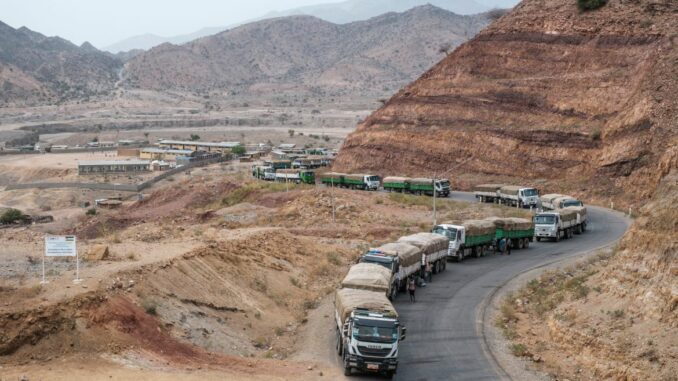
One year after an agreement brought peace to the regional state of Tigray, fighting and atrocities continue in Ethiopia, and victims are still waiting for justice, Human Rights Watch (HRW) and the European Union (EU) lamented on Thursday November 2.
On November 2, 2022, in Pretoria, the Ethiopian federal government and the Tigray authorities, who had rebelled two years earlier, put an end to one of the world’s deadliest conflicts – with several hundred thousand deaths and countless atrocities.
While hailing the “courageous commitment to peace shown” by the signatories, EU diplomatic chief Josep Borrell on Thursday shared his “concerns about the various ongoing conflicts in Ethiopia, the state of emergency and the various types of human rights violations that are constantly being reported”.
Sponsor of the agreement, the Addis Ababa-based African Union (AU) “congratulated the Ethiopians for choosing peace, national dialogue and reconciliation”, said AU Commission Chairman Moussa Faki. In a statement, Moussa Faki “welcomed the notable milestones recorded in the implementation of the agreement”, without a word for the conflicts ravaging other parts of Ethiopia.
“Governments supporting the fragile truce in Ethiopia cannot look the other way as crises intensify” in the country and “civilians continue to be the main victims of atrocities”, reminded HRW Africa Director Laetitia Bader on Thursday.
In early November 2020, Prime Minister Abiy Ahmed – winner of the Nobel Peace Prize a year earlier for his rapprochement with neighboring Eritrea – sent the federal army to quell the Tigray authorities, who had gone into rebellion.
Forces from the neighboring Amhara and Afar regions and the Eritrean army supported the Ethiopian army. But none of these players took part in the negotiations or signed the Pretoria agreement. This broke the alliance between the federal government and the Amhara forces, degenerating into open conflict in Amhara in April. A state of emergency was declared in August, and the conflict has been accompanied by “hundreds of civilian casualties, mass arrests of Amhara and damage to civilian infrastructure”, notes HRW.
